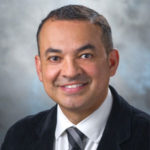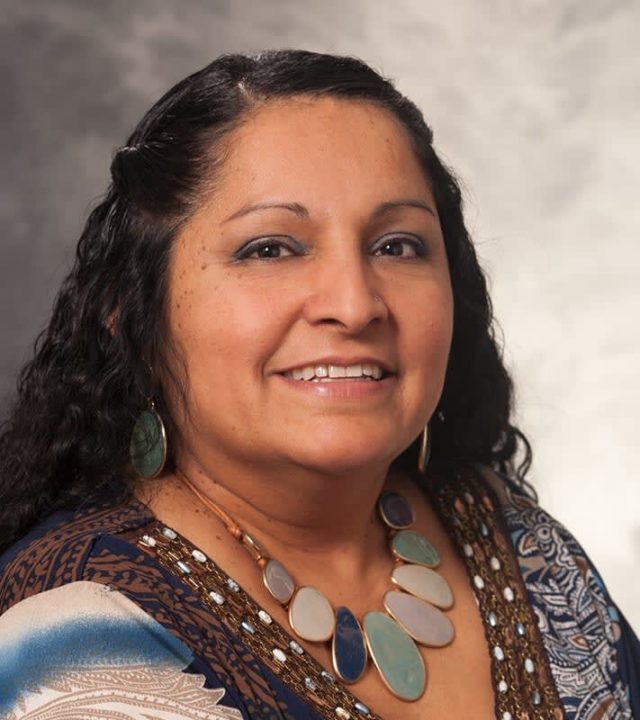The Latino community is the fastest-growing segment of the population in Wisconsin, but the number of physicians from that community has been declining nationwide over the past 30 years. Fewer than five percent of physicians in the US identify as Hispanic or Latino.
“We know in medicine that if you see a physician that looks like you, that understands culturally where you’re coming from, the health outcomes are better,” UW Health family physician Dr. Patricia Tellez-Girón told Madison365. “But we need to start growing our own because we don’t see that the society at large is really aiming for that.”
With that in mind,Tellez-Girón and several other health care leaders have launched a new organization — a Wisconsin chapter of the Medical Organization for Latino Advancement (MOLA), which started in Chicago in 2017.
Tellez-Girón said she and several other Madison physicians were attending the 2019 meeting of the National Hispanic Medical Association (NHMA) and got to talking with some colleagues from Chicago who had started MOLA there two years earlier.
“We had been already doing this without formalizing it,” said Tellez-Girón, who is founding president of MOLA-Wisconsin, which was recently approved for 501(c)(3) status as a nonprofit organization. “I have been doing mentoring for the past probably 20 years. We realized that a lot of what we were doing here was already very similar to what the MOLA model was.”
That model is one of mentorship and support for young people who wish to pursue careers in health care, from high school age all the way through medical school. That can include encouragement, advice, networking and connections, as well as help finding internships and even financial support for medical school entrance exams.
“It’s basically a ladder, where each member is helping the one below them to succeed,” Tellez-Girón said.
Importantly, the MOLA model has a local focus.
“We do have other organizations like the National Hispanic Medical Association, that is kind of an umbrella, but we need organizations that are more local that are going to more local work,” she said.
After that initial conversation at the NHMA meeting, it took three years to get MOLA-Wisconsin launched due at least in part to the intervention of the COVID-19 pandemic.
“We had much more work to do in the communities than to really focus on forming the organization,” Tellez-Girón said. “But we tried to get back going because we know how important it is. So we would have been faster without COVID, but it is happening.”
She said helping health care professionals tend to their own mental health and well-being will be an important focus for the organization.
“I think as health professionals, sometimes we forget about us, because we’re serving everybody else,” she said. “So that’s another thing that MALO Chicago does very well. They help to nurture their members so that they can continue to do what they do.”
It’ll also be important to listen to young people just entering the profession to assess their needs.
“I have been doing this for 30 years. My training may have been very different,” she said. “But we want to see what they need so that we can fulfill the needs.”
MOLA-Chicago vice president Oscar Zambrano said it’s “extremely exciting” to launch a second chapter.
“We are a professional trade organization, and at the same time, we have a lot of community roots,” he said. “We’re excited to expand in Wisconsin, because we believe that there is a lot to be done, a lot of opportunity to have better health for our community in both Milwaukee and Madison.”
Zambrano said launching local chapters in communities across the country is one of the organization’s goals.

“We have MOLA members in California, Florida, New York … the way the training works is that the medical students nationwide participate in applications to different residency programs in many parts of the nation,” he said. “So they might go to school, let’s say in Milwaukee, and they go to residency in Ohio, and they go to a fellowship program in Texas. So hopefully, they come back to the communities they came from. “
According to a press release provided to Madison365 Monday, the Wisconsin chapter has formed a board of directors that includes María Mora Pinzón, MD, MS, FACPM (President – Elect); Erick Tarula, MD (Treasurer); María Daniela; Martín Rother, MD (Secretary); Manuel Santiago, MEd; Shiva Bidar-Sielaff, MA, CDM; Reivian Berrios Barillas, PhD, PT; Fernando Cano Ospina, DSC; Alejandra Torres Díaz, BS; and Juliana Craig, BS.
Tellez-Girón said the Wisconsin chapter will now begin recruiting members and fundraising. She said the board is all-volunteer and unpaid, and funds raised will support students in health care professions prepare for exams, attend conferences and so on.
“We know that you cannot be what you cannot see,” MOLA-Wisconsin president-elect Dr. Mora Pinzón said in a statement. “We hope that, by collaborating with MOLA-Chicago and other organizations, we can increase the number of role models that our community has, make sure that everyone feels that they belong in medicine, and bring new resources to support everyone in their journey!”


































